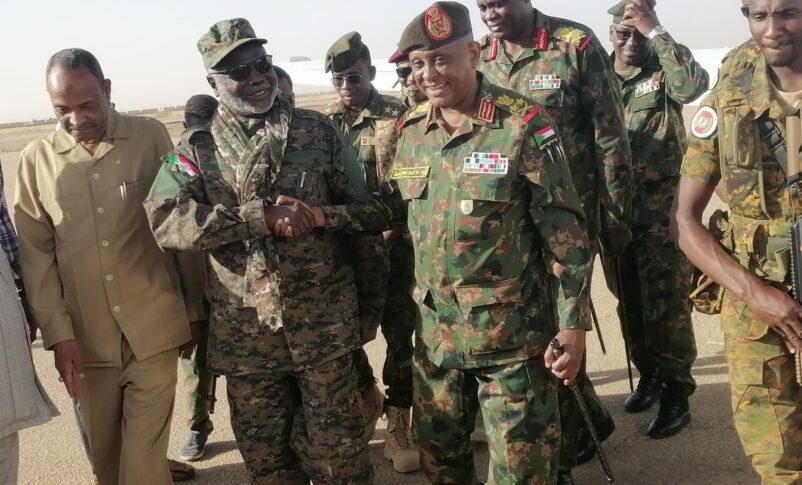Sudan’s military leader rejects Ramadan ceasefire call
March 9, 2024 (KASSALA) – Sudanese Lieutenant General Yasir Al-Atta, Assistant Commander-in-Chief of the Sudanese army, publicly rejected calls for a ceasefire with the Rapid Support Forces (RSF) paramilitary group during the holy month of Ramadan.
On Friday, the UN Security Council urged both sides in Sudan’s ongoing conflict to cease hostilities before Ramadan. The fighting, which has persisted for 11 months in Khartoum, Darfur, Kordofan, and Al-Jazira, has caused a severe humanitarian crisis.
In a speech on Saturday to graduating Justice and Equality Movement (JEM) forces in Kassala, Al-Atta commented on the ceasefire appeals, stating that the military and the people would not agree to a truce dictated by others.
He elaborated that Sudan’s military chief, Lieutenant General Abdel Fattah al-Burhan, had made it clear to all interlocutors that a ceasefire with the RSF was impossible due to their perceived lack of morals and disregard for the law.
Al-Atta outlined specific conditions for a truce: the RSF’s withdrawal from occupied cities in Darfur and Kordofan, their departure from Khartoum, and the handover of military equipment.
He emphasized that negotiations would only take place once these terms were met. The said negotiations would begin once their fighters are gathered in six cantonment sites, three in Khartoum and three in Darfur, to which RSF troops would relocate and surrender their weapons.
Discussions would then only focus on legal accountability, with potential dismissal or reintegration based on individual legal outcomes.
Al-Atta appeared to be reading from a prepared text, which he reviewed carefully before continuing his speech.
He vehemently opposed any future political role for the “Daglo family” – a reference to RSF leader Mohamed Hamdan Daglo – and other senior RSF figures. He argued that political leadership should be determined by the Sudanese people following the conflict, not through negotiation. He also maintained that the RSF had no place in the military institution due to their incompatibility with the values of honour, integrity, and impartiality upheld by the Sudanese armed forces.
Al-Atta concluded by expressing gratitude to all international organizations and states, regardless of their stance on the conflict. He reiterated that the Sudanese military and security forces were committed to following the people’s will, which he defined as “defeating the RSF and building a modern Sudan.”
He further called for an emergency government to bolster the war effort and rebuild areas liberated from RSF control.
Gibril Ibrahim, the JEM leader and Finance Minister, stood beside Al-Atta during his speech, appearing to support his statements.
Renews accusations against UAE
Al-Atta reiterated his accusations against the United Arab Emirates (UAE), claiming the RSF’s actions, including killings, looting, and violence against civilians, were carried out with the UAE’s direct support.
He referred to the UAE leadership with inflammatory terms like “evil state” and “princes of ruin”.
Al-Atta further alleged that these violations occurred despite international scrutiny from African, international, and Islamic organizations.
The military leader claimed the UAE instigated the war to pursue its goals in Sudan, which he said aimed to control the country’s ports, agricultural land, and mineral resources.
He stated another reason for the conflict was the creation of a rival force that threatened to take over state institutions, making Mohamed bin Zayed the de facto ruler of Sudan.
The Assistant Commander-in-Chief of the Sudanese army was the first high-ranking Sudanese official to accuse the UAE of supporting the RSF in its war against the army and providing weapons through Chad.
The accusations sparked a diplomatic crisis between Sudan, the UAE and Chad.
(ST)

